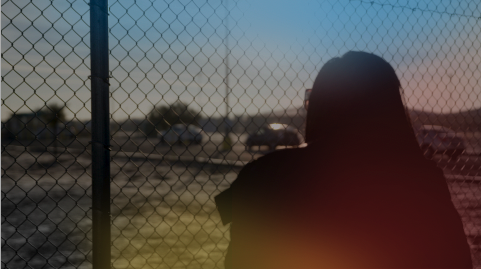In the early hours of a fateful Friday, as Hurricane Helene unleashed its fury on Western North Carolina, a grim reality unfolded within the confines of the Mountain View Correctional Institution in Spruce Pine. Nick, a prisoner who requested anonymity for fear of retribution, awoke to find his single-occupancy cell flooded. The torrential downpour had not only breached the prison’s defenses but also rendered his toilet inoperable. This harrowing situation was just the beginning of a nightmare that would last nearly a week.
For five agonizing days, over 550 men at Mountain View endured a complete breakdown of basic sanitation and communication. Family members reported that the incarcerated individuals were left without lights or running water, forced to live in close quarters with their own excrement. Bridget Gentry, whose husband is among those incarcerated, recounted his trauma: “He said, ‘We thought we were going to die there. We didn’t think anybody was going to come back for us.’”
The conditions inside the prison were dire. As nearby residents sought refuge from the storm, the men remained trapped, with their only option for sanitation being plastic bags. “Some offenders did defecate in plastic bags,” confirmed Keith Acree, the head of communications for the North Carolina Department of Adult Correction (NCDAC). This makeshift solution was a desperate response to an increasingly intolerable situation.
Food rations dwindled to a meager four crackers for breakfast and two pieces of bread with peanut butter for lunch and dinner. Potable water was scarce, with deliveries delayed for days. While Acree insisted that the facilities did not run out of food or water, the accounts from family members paint a different picture of neglect and desperation. “We had to stay in a six by nine foot cell with feces in the toilet and the room smelling bad,” recounted Sammy Harmon Jr., another inmate. The lack of sanitation led to physical ailments, with Harmon developing sores on his legs due to the unsanitary conditions.
The NCDAC eventually evacuated more than 2,000 incarcerated individuals from five facilities affected by the storm, but the response was criticized for being slow and inequitable. The evacuation of Mountain View occurred on October 2, a full day after the nearby Avery-Mitchell Correctional Institution, which had faced similar flooding. The prioritization of evacuations raised eyebrows; Acree explained that Avery-Mitchell’s dormitory-style housing posed a greater risk for chaos compared to Mountain View’s single-cell setup. However, this rationale did little to assuage the fears and frustrations of families left in the dark.
The aftermath of Hurricane Helene has highlighted not only the physical dangers posed by natural disasters but also the systemic vulnerabilities within the prison system. The storm, which has claimed over 200 lives and left many missing, has drawn attention to the plight of those incarcerated during such crises. As rescue efforts continue, the incarcerated population remains a largely overlooked demographic, their suffering compounded by the isolation and lack of communication.
Family members of inmates expressed their anguish over the lack of information during the storm. Stephanie Luffman, desperate for news about her partner, felt compelled to flood the NCDAC’s social media with pleas for updates. “I feel like the NCDAC wasn’t going to do anything until I started raising hell,” she said, reflecting a sentiment shared by many who felt powerless in the face of bureaucratic indifference.
The emotional toll of this ordeal is profound. Melanie Walters, whose son is incarcerated at Mountain View, described the frustration of trying to reach officials only to be met with voicemail messages that dismissed her concerns as non-emergencies. “How dare he — it is an emergency when I don’t know where my son is for a week,” she exclaimed. Such sentiments underscore the broader issues of neglect and dehumanization that often characterize the treatment of incarcerated individuals.
The trauma experienced by these men is not just a reflection of the immediate crisis but also a symptom of a larger systemic issue. The conditions they faced during Hurricane Helene raise critical questions about the preparedness of correctional facilities in the face of natural disasters. As Gentry poignantly noted, “Inside there, you’re a number. You do not matter. You are treated worse than a rabid dog.” This dehumanization can have devastating consequences, as evidenced by the suicide of a man incarcerated at Mountain View just days before the storm.
As the dust settles from Hurricane Helene, the stories of those incarcerated in Spruce Pine serve as a stark reminder of the vulnerabilities faced by marginalized populations during crises. The systemic failures that allowed such conditions to persist must be addressed to ensure that the rights and dignity of all individuals, regardless of their circumstances, are upheld. The aftermath of this disaster should not only prompt a reevaluation of emergency protocols within correctional facilities but also inspire a broader conversation about the treatment of incarcerated individuals in our society.


